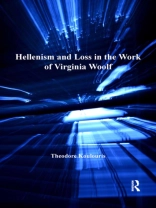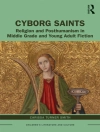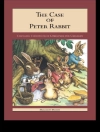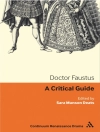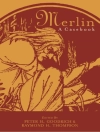Taking up Virginia Woolf”s fascination with Greek literature and culture, this book explores her engagement with the nineteenth-century phenomenon of British Hellenism and her transformation of that multifaceted socio-cultural and political reality into a particular textual aesthetic, which Theodore Koulouris defines as ”Greekness.” Woolf was a lifelong student of Greek, but from 1907 to1909 she kept notes on her Greek readings in the Greek Notebook, an obscure and largely unexamined manuscript that contains her analyses of a number of canonical Greek texts, including Plato”s Symposium, Homer”s Odyssey, and Euripides” Ion. Koulouris”s examination of this manuscript uncovers crucial insights into the early development of Woolf”s narrative styles and helps establish the link between Greekness and loss. Woolf”s ”Greekness, ” Koulouris argues, enabled her to navigate male and female appropriations of British Hellenism and provided her with a means of articulating loss, whether it be loss of a great Hellenic past, women”s vocality, immediate family members, or human civilization during the formative decades of the twentieth century. In drawing attention to the centrality of Woolf”s early Greek studies for the elegiac quality of her writing, Koulouris maps a new theoretical terrain that involves reassessing long-established views on Woolf and the Greeks.
Theodore Koulouris
Hellenism and Loss in the Work of Virginia Woolf [PDF ebook]
Hellenism and Loss in the Work of Virginia Woolf [PDF ebook]
Köp den här e-boken och få 1 till GRATIS!
Formatera PDF ● Sidor 252 ● ISBN 9781317122685 ● Utgivare Taylor and Francis ● Publicerad 2016 ● Nedladdningsbara 3 gånger ● Valuta EUR ● ID 5310159 ● Kopieringsskydd Adobe DRM
Kräver en DRM-kapabel e-läsare
